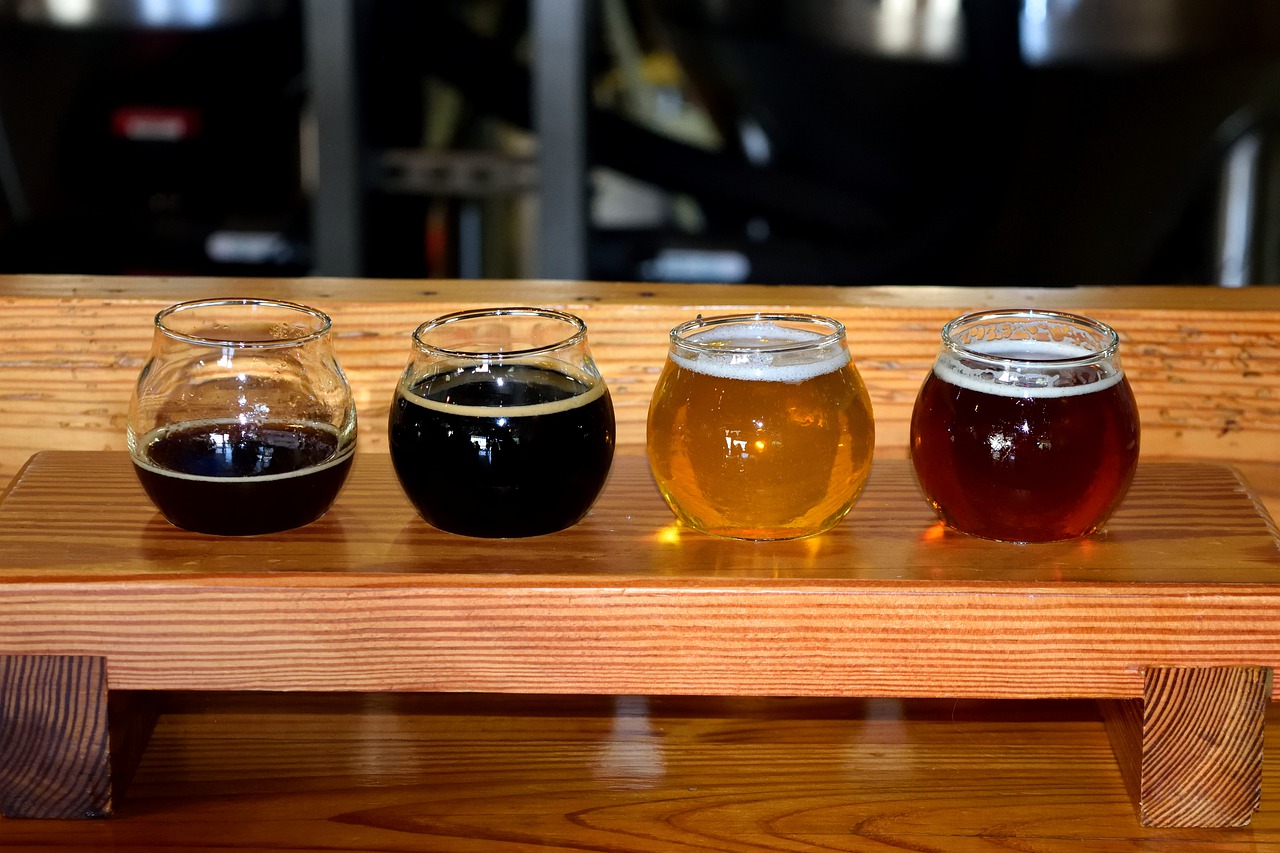The trademark class for beer and other light beverages is distinct within the International Trademark Class system.
What is that system? What is an International Class? Why does a beer product or beer brand deserve its own Class?
What is a “light beverage,” anyway?
This Article will attempt to answer a few of these questions for Michigan and other craft brewers, breweries, and other beer entrepreneurs in the United States.
First, a preliminary question: Is trademark registration for craft brewers and beer products useful?
Why Register Your Beer Brand In Any Trademark Class?
Trademark registration is crucial for any craft beer product or brewery tavern or restaurant service.
The craft brewing industry is highly competitive—and highly localized.
This means that competition for a tavern or beer label business or brand name may arise from even the most unknown corners of Michigan and elsewhere in the U.S.
Why is this?
The equipment, technology, and space required to brew beer does not require NASA-level resources. Everyone has a brother-in-law brewing mint-flavored beer in his garage. Of course, high end, serious craft brewers with the right resources and investment are not working from garages, although they may well have started there. Nevertheless, the craft brewing industry is essentially a grassroots movements.
If you have a craft beer you’ve developed, you want to name it, don’t you?
That’s the fun part.
It’s also the part of the process that makes Federal trademark registration so essential. That is, how do you know that some craft brewer in Oxford, Michigan isn’t using that very catchy IPA brand name that you’ve already come up with?
You don’t. However, if you’ve registered that beer product name, or your brewery name, with the US Patent and Trademark Office (USPTO) as a Federal Trademark, they ought to know. And re-brand.
If they don’t, you have the right to force them to do so.
The Mighty Power of Registering Craft Beer & Brewery Names as Trademarks
Registering your craft brewery or beer brand name or logo with the USPTO as a Federal trademark imbues your enterprise with powerful legal advantages.
A registered trademark:
- Allows you to use the ® registered trademark symbol in your advertising and packaging.
- Prevents anyone else from registering that same name or logo as a trademark.
- Allows you to serve a cease and desist letter upon any infringers.
- Allows you to file suit for trademark infringement in Federal court.
- Allows you to ask US Customs to block import of infringing knock-off products.
- Publicizes your right to exclusive national use of that brewery or beer name or logo on the trademark register.
That last trademark registration “mighty power” is perhaps the most powerful of all. You won’t know it’s happening, but, throughout the US, other craft brewers will hire other trademark attorneys to run pre-filing clearance searches on their proposed brewery or beer names.
Your registered trademark for that name or even anything close to it will show up in their clearance searches.
And their trademark lawyer will strongly suggest to them that they re-brand before launching.
You’ll have stopped them dead in their tracks without doing a thing.
This is effective throughout the US. Merely registering your LLC or corporate name or even registering your trademark at the Michigan or other state level will not accomplish this.
Read more about pre-application trademark clearance searches here.
What Are Trademark Classes, Anyway?
The trademark class system is an international system for dividing trademarks into 45 different categories (classes) for different goods and services.
What Goods or Services Does Your Trademark Represent?
When you file a trademark registration application, you must specify the specific goods and/or services with which you will associate the mark in US commerce.
You cannot register a trademark just because you thought it up and like the name, in short. It must be used to identify you or your brewery as the source of the product or service you are selling across state lines.
This is because, unlike patent or copyright registration, the essential purpose of trademark registration is consumer protection. The USPTO wants to ensure that consumers in Michigan and elsewhere in the US are not confused about what they are buying and from whom.
Yes, trademark registration confers all of those advantages above—and having your trademark registered and your brand enforceable under law is what gives your business value. But the USPTO is primarily concerned about your customers.
If you are not using a brewery or craft beer name or logo in US commerce, you cannot register it as a trademark. (This is where the trade part of the term comes into play.)
Further, if you are using the name only to identify your brewery as the source of a craft beer product, the USPTO will not view it as likely that US consumers will be confused by the use of the same name in association with the sale of computer microprocessor.
Two businesses can register a trademark for the same name if there is no likelihood of consumer confusion.
Microprocessors and other computer components will be in a totally different International Class than beer.
The International Class System Generally
As noted, the trademark class system is governed at the international level, by the World Intellectual Property Organization (WIPO).
Thus, the trademark classes are known as International Classes, or ICs.
The first 34 International Classes identify different types of products. The remaining ICs identify services.
Your craft beer brand is a product that would fall into Class 32.
Your craft brewery tavern is a service that would fall into Class 35 (retail and business services) or Class 43 (hotels and restaurants).
You can file a US trademark registration application for as many ICs as you actually intend to sell a product or service within under your brewery or beer name or logo.
You cannot file a trademark registration application for your beer brand name under Class 44 (medical, beauty, and agricultural services) until you are currently selling or seriously intend to sell a service under that name. (Pabst Beer Cosmetic Surgery Clinics, anyone?)
The USPTO charges a filing fee for trademark registration applications based on the number of ICs attached to the application
So can you file your trademark registration application in every possible Class? Sure, but it will cos you a mint—and you’d better be prepared to prove your use in commerce in all of those Classes.
What Is Included in Class 32?
As noted, the trademark Class for beer products is Class 32.
What’s included in Class 32, exactly?
Trademark Class 32 is designed for the use of “light beverages.”
This includes primarily non-alcoholic beverages. Selling lemonade? Class 32 is for you. However, it also includes beer.
Class 32 also accommodates mineral and aerated waters, fruit beverages and fruit juices, as well as syrups and the other preparations needed for making beverages.
What’s not included in Class 32?
Beverages for medical purposes, milk-based or milk beverages, or beverages involving coffee, cocoa or any other chocolate base.
These sorts of beverages are included in other International Classes.
What Class Is Appropriate for Wine & Other Related Products?
We’ve already noted, above, the Class 35 and Class 43 are the Classes appropriate for selling your craft beer product, in a brewery or on a wholesale or retail basis.
Other products may be “related” to beer products or services.
Class 33, for example, is the Class used for wines and spirits. The trademarks for all alcoholic beverages other than beer are registered in Class 33, in fact.
The hops or grains that may feed your craft beer recipe would be registered under Class 33.
If your craft brewery serves food, this would also be a restaurant service registered under Class 43.
Do your customers enjoy a cup of black coffee before hitting the road? Take a sip of Class 30 for your custom-branded coffee bean.
Long story short, there are a variety of products or services that may be related to your craft beer or brewery product or service, but one or more of them may reside in totally different International Classes than your staple beer product.
What Can a Michigan Trademark Attorney Do for My Craft Brewery?
Retaining a Michigan trademark attorney to assist you with your craft beer or brewery trademark registration will maximize your odds of complete brand protection.
A trademark lawyer will first discuss with you whether or not your beer or brewery name is sufficiently strong to be registered as a trademark.
We will then, if so, run a full, professional, pre-filing clearance search to ensure that your beer or brewery name is not already registered or in use elsewhere in the United States. (Whomever has used a trademark longer in commerce is entitled to it regardless of whether they’ve ever filed a trademark registration application or not.)
We will then expertly draft and file and prosecute your trademark application. We will be pre-positioned to respond to any USPTO Office Action refusals or third-party Oppositions that come our way.
Retaining a Metro Detroit trademark attorney will ensure that your trademark registration application is not denied for any easily avoidable reason.
Serious enterprises do not cut corners on the protection of the brand that will give their business 100% of its value by trying to DIY their trademark registration or using cheapo non-lawyer trademark filing “services.”
Noble Path Trademark Law is a boutique US law practice located in Metro Detroit and assisting entrepreneurs, solopreneurs, artists, musicians, start-ups, and larger enterprises with robust intellectual property portfolios, and others in all industries with trademark registration, trademark renewal, trademark monitoring, and Office Action refusal response matters.
We offer virtual consultations, premium customer service, and the expertise you need to maximize your odds of trademark registration success.






